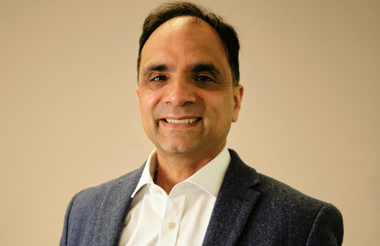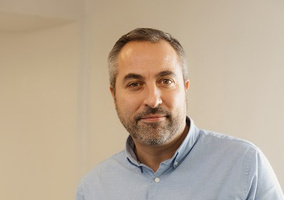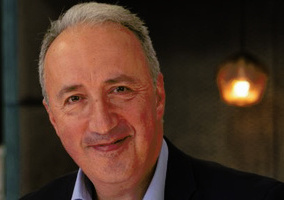Before joining the charity sector, Anand Shukla had a “wider, not well-defined ambition of making the world a better place”, but did not know what that looked like.
“I had a few general ideas, but wanted to start off my career in the private sector and then move across when I was a bit older,” he says.
After completing his undergraduate degree in modern history and French, Shukla worked in the publishing industry, primarily in the new product development department.
Five or so years later, he had “this romantic view” that he wanted to go to a foreign country and learn its language, and decided to go to Spain.
Upon his return to the UK in the early 2000s, he secured a job with philanthropy publication Alliance magazine as its first-ever business development manager.
A series of leadership roles in the charity sector followed before Shukla, who has three children, took a career break in 2020 to study international relations at King’s College London.
After his degree, Shukla held a range of consultancy and temporary roles, including as interim CEO at Age UK Merton and providing advisory support to the leadership and board of a social enterprise in south London.
Just over three years ago, Shukla was recruited as interim CEO at the then-named Henry Smith Charity, with his role becoming permanent a few months later.
Fostering new business leaders
For nearly 400 years, the Henry Smith Foundation has focused on fulfilling the philanthropic wishes of its eponymous founder, a businessman, spending its permanent endowment on causes related to reducing social and economic disadvantage across the UK.
The foundation, which changed its name this week, is now one of the largest charitable grantmakers in the UK. In 2024, it awarded £61.9m, supporting over 970 organisations and reaching more than 410,000 people.
In April 2025, it launched the Minority Ethnic Leadership (MEL) programme, which builds on the Black Leadership and Empowerment Programme that took place in Manchester last year, in partnership with the Open University.
The MEL programme aims to “foster new business leaders of the future” from minority ethnic backgrounds by enabling participants to “engage in social practices leading to impactful change to improve their communities’ exclusion or disadvantage”.
Shukla previously described the programme as “important, as we know that leaders from minority backgrounds are really under-represented in the voluntary and community sector”.
Now, he argues there has been “slow” progress in this area since he joined the charity sector two decades ago.
“I know from my own experience in the charity sector how hard it is to access high-quality leadership and management development. There is some out there, but not a huge amount of it, and it’s difficult to secure places and get funding for it.”
He says that having enduring social change “requires managers and leaders who’ve received and benefited from good training and development”, adding that “leadership and management for people from marginalised or underrepresented backgrounds is a big part of what we’ll be looking to support in the future”.
Persuaded to pause funding
In 2017, the Henry Smith Foundation launched its main grants strategy, which it described as the “latest stage” in the evolution of its grantmaking over the years.
However, last year, the foundation announced that its improving lives and strengthening communities grant programmes would close to new applications from 28 June 2024.
This was to enable it to review its strategic priorities, considering “the changed context”, and adapt to societal changes since its strategy launch in 2017.
Shukla admits he was reluctant to pause funding between strategies: “I’d never worked in a foundation before, but all the charities I’ve worked in wouldn’t have closed but would’ve done it in parallel.
“The changes we were bringing in were so fundamental that I was persuaded to do it, to set us up to create long-term partnerships. To enable deeper impact, we needed to change the organisation.”
To avoid disrupting the flow of funds to the sector, Shukla and his trustees put in place measures, including giving out a year’s worth of grants in nine months and bridging funding to organisations that would have been able to apply to the charity for continuation funding had it been open.
They also created partnerships with other grantmakers to provide funding in areas of related work. One example is the Northern Ireland Thriving Futures Fund, launched in partnership with Community Foundation Northern Ireland.
Shukla says that thanks to these initiatives, “the amount of funding we’ve distributed to the sector in 2024 and 2025 would be the same as if we’d stayed open as normal”.
“If you look at the numbers in 2024, we gave out £62m and in 2023 it was £47m. We gave out more in 2024, and it’ll be slightly less in 2025. So, the flow of funds to the sector hasn’t been disrupted; it’s been lumpier.
“I was clear on that because having worked in the sector for 20 years and applied for funding, I know first-hand what the pressures are like. But at the same time, I had to balance that with ensuring that Henry Smith was setting itself up to deliver its new strategy as effectively as possible.”
More flexible support
Shukla says the Henry Smith Foundation worked across a “wide range of programme areas” in the past. Now, it wants to sharpen its focus so it can achieve deeper impact.
The 2025-30 strategy focuses on three areas: getting started (supporting families to give their children a strong start); building independence (helping young people move into adulthood at key points of transition); and safer futures (supporting people to rebuild their lives, whether they are in the criminal justice system, suffer from domestic abuse or are refugees and asylum seekers).
Shukla says his foundation will be offering “broader, more flexible support”, meaning long-term grants and core cost funding.
“As well as providing funding for frontline organisations, we’ll also be providing funding for individuals and leadership. We’ll be funding policy and influencing work. We’ll be looking to change systems and provide non-financial support, bringing the organisations we fund together to work more collaboratively. There’ll be a much bigger emphasis on learning, sharpening our focus.
“We’re going to be much more relational in future. This approach is designed to build longer-term, deeper partnerships with the organisations we fund, so that we can help them become stronger, get to know the issues they’re working in and help them achieve the impacts they’re looking to achieve.”
On learning, Shukla says that as a foundation, his organisation has “a real privilege of sitting at the centre of a network of organisations”.
“Today, we fund something like 840 organisations. We get lots of information from them about the types of work they’re doing and challenges they’re facing.
“There’s a role for foundations in bringing partners and organisations together to share learning, improve and build collaboration and connect them with decision-makers, whether they’re in local authorities, regional authorities or government.”
He stresses that there is a big focus on collaboration and connection in the new strategy, which is distinct from how his foundation used to operate.
“It’s been a long process over the last couple of years, shaped by consultation with the sector. We’ve worked with charities, sector experts and people with lived experience who’ve helped us identify the priority areas and refine our approach to those areas.”
300% increase in applications
Over the last year, the Henry Smith Foundation has seen increased requests for funding across the board. Shukla says the challenges faced by charities are complex, with rising needs to support.
“There’s a lot of pressure out there. You’ve got challenges with the cost of living and in terms of demand for services and recruitment of staff and volunteers, and these are combining in ways that are very challenging.
“We’ve seen these types of pressures across the board, particularly in marginalised communities, who often struggle to get funding anyway. We’ve also seen increasing demand for mental health support.”
He recognises that, however, his organisation cannot do everything and must focus on its funding priorities.
“It’s a question of choice, which is what strategy is about. There’s been a huge surge in demand. There was a 300% increase in applications in 2024 compared with 2023 that was partly due to the fact that we announced that we were closing.
“We need to ensure we’re fair, transparent and accessible as a responsible grantmaker.”
Embedding equity in grantmaking
Shukla says his foundation strives to provide applicants with feedback on their applications, publishes grantmaking data on 360Giving and shares success rates. It is also a member of IVAR UK’s open and trusting grantmaking initiative.
“We think very hard and embed equity throughout our grantmaking process. We’ve developed a diversity, equity and inclusion action plan to embed fairness and equity into our grantmaking and we analyse our data to address potential inequities.
“But that’s in the context of a huge amount of need and demand, so that’s a big challenge for all funders.”
Shukla is keen to ensure that his organisation uses its influence to broker relationships, be it at sector level or between decision-makers and other funders.
He is struck by the fact that “as a wealthy foundation, we can think long term and about enduring impact and how to intervene earlier to address the systems that are failing people, in addition to the consequences of that failure”.
“We’ve been around for almost 400 years. If we can’t think long term, I’m not sure who can. There are opportunities in relation to diversity and lived experience, and embedding that throughout our work and practice.
“The final thing, which I’m excited about, is using our learning for wider change, sharing what we learn, learning from others and using evidence to help inform systems and policy change.”













